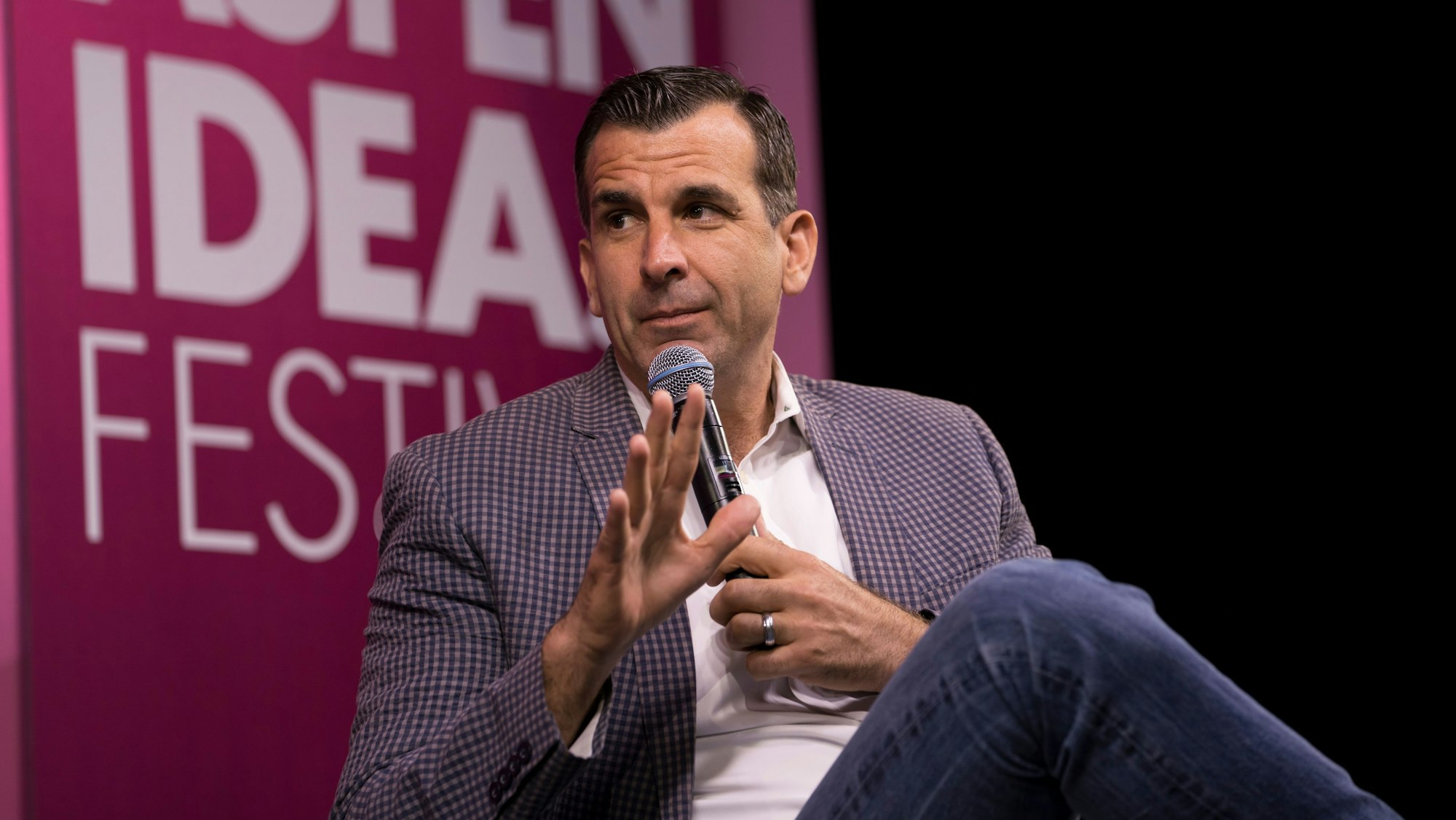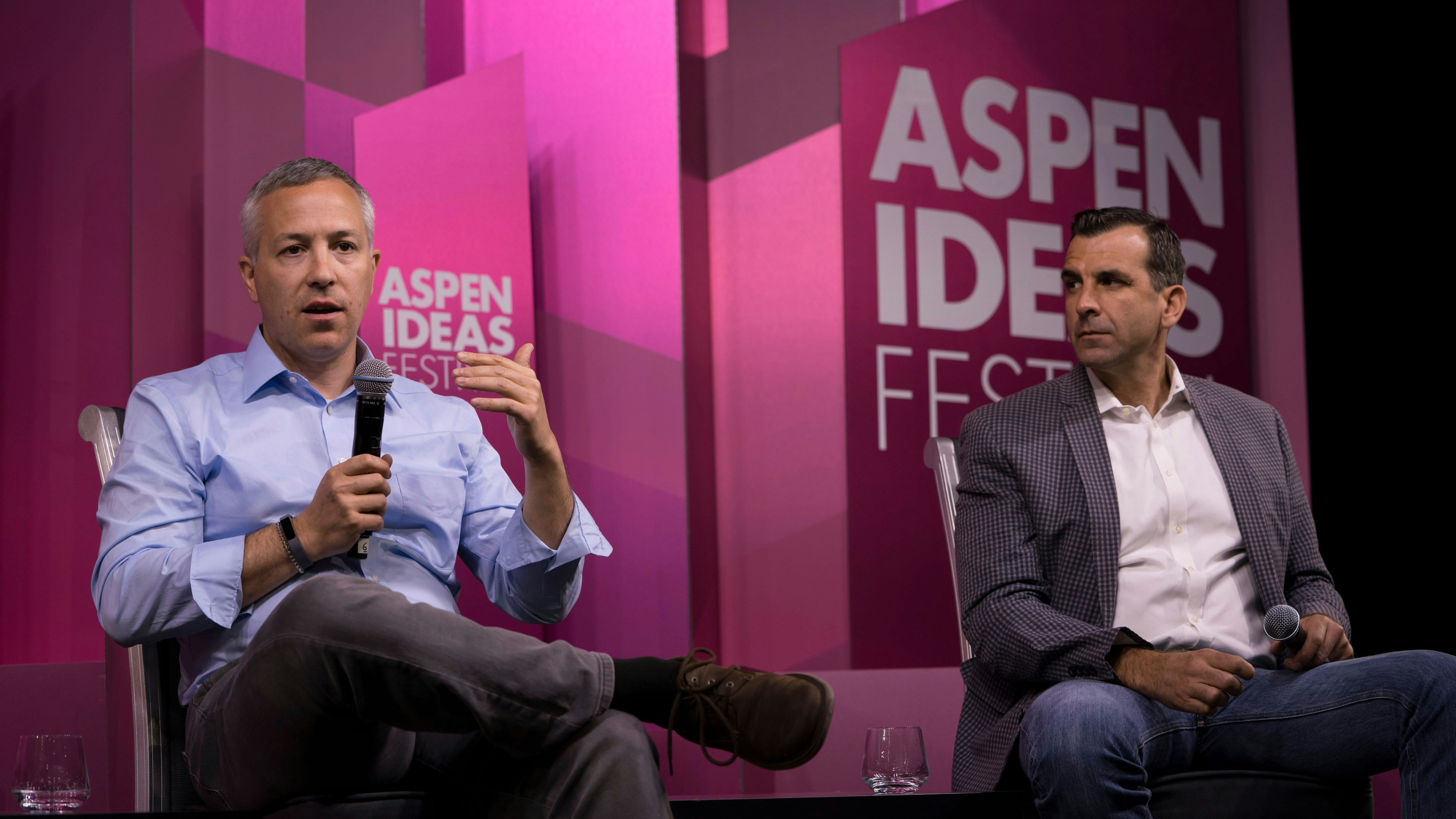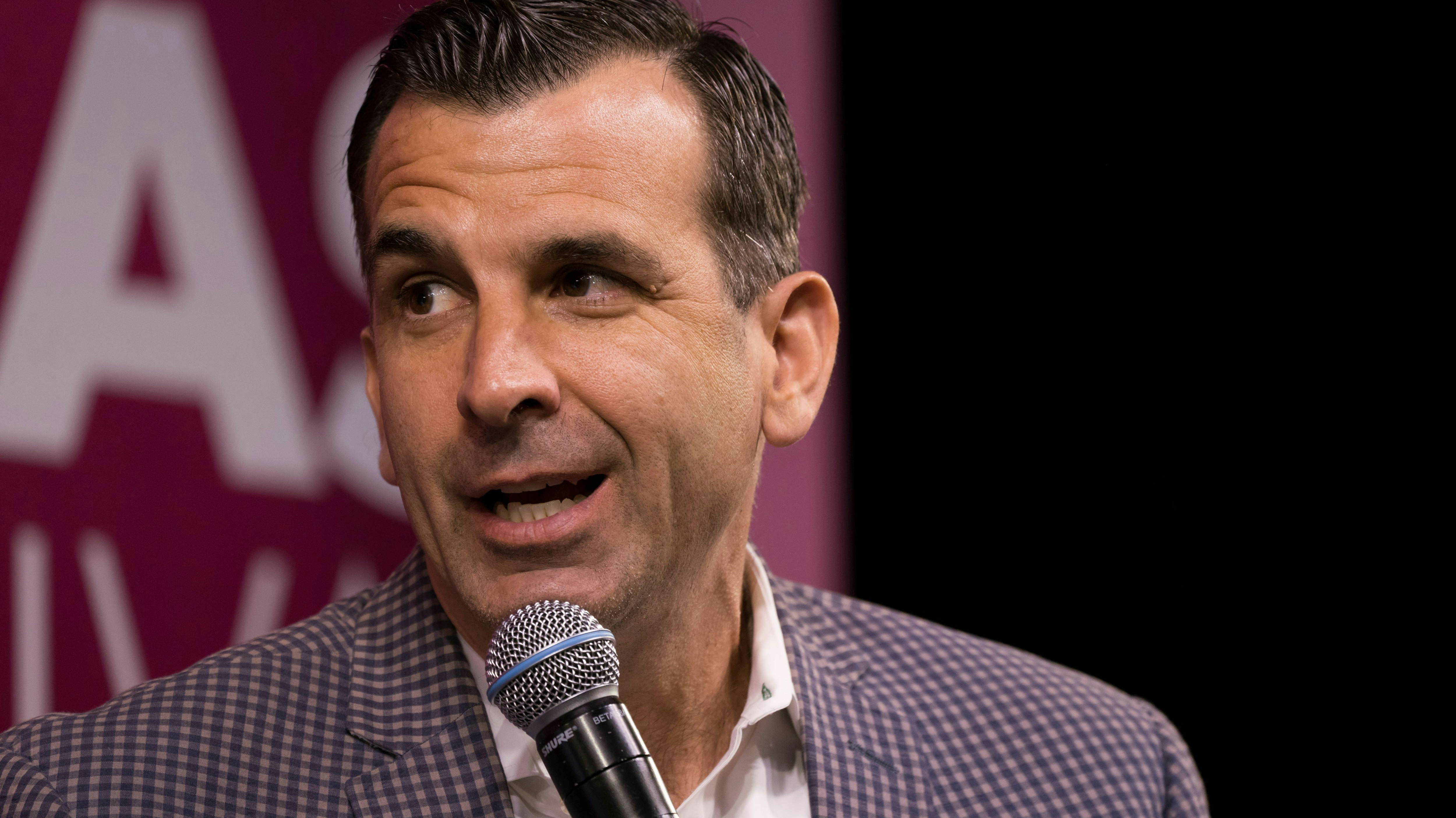
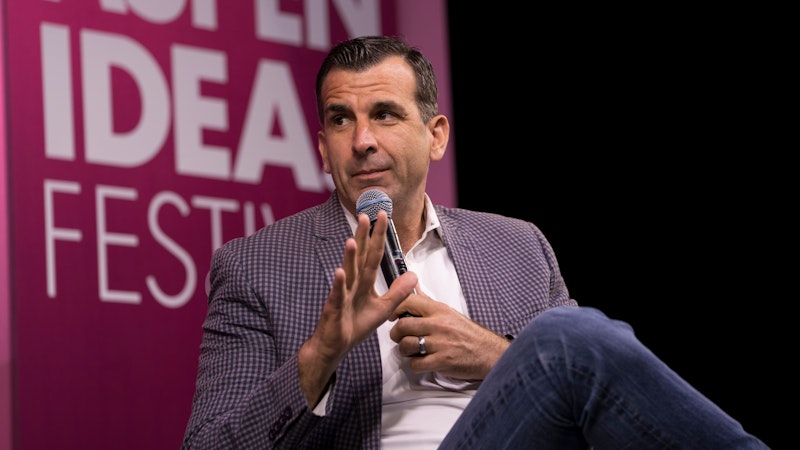
On Climate Policy, Cities Lead the Way
Setup
Cities are responsible for 70 percent of global carbon emissions, and by 2050, two out of every three people will live in one. Fortunately, cities are getting serious about environmental footprint — New York announced its own Green New Deal, Melbourne aims to be carbon neutral by 2020, and Los Angeles will use 100 percent renewable energy by 2045. Mayors are often more nimble than state and federal officials, installing policies faster and to greater impact. From infrastructure to transportation systems to water management, hear from the mayors’ offices in San Jose and New York on the heavy lifting they’re getting done in the absence of federal leadership in the climate movement.
- 2019 Festival
- Environment
- Health
- World
Can small solutions fix a global crisis?
Climate change is real, and it will touch every corner of the world. One popular criticism of city-scale efforts to curb emissions and go green claims that a city-by-city fight against climate change directs energy away from sweeping and urgent solutions at a national or international level. Shouldn’t we be thinking bigger? Sam Liccardo, mayor of San Jose, California, and Daniel Zarrilli, chief climate policy advisor for New York CIty, say that’s the wrong way to think about the issue:
Some efforts, like auto emission standards and pollution control, are most efficient when enacted at the national level. But in parallel, there are other areas — like land use and transit — that are best addressed at a local level. Solving climate change will require national and local governments working in concert, not each acting separately.
Rethinking buildings from the ground up
In the fight to reduce energy use and curb emissions, more US cities are looking to building owners. Building styles over the last century haven't exactly prioritized energy efficiency. Skyscrapers, warehouses, and even residential homes are massive energy consumers. Many buildings become even less efficient as they age, so there’s massive potential for energy savings by retrofitting those buildings.
By the numbers
Daniel Zarrilli has an ambitious plan for New York City. In the concrete jungle of Manhattan, the buildings are responsible for 70% of the city’s emissions. As part of a larger climate plan, New York will require building owners to retrofit their buildings over the coming decades to meet exacting emissions standards. And to make sure that building owners don’t pass those costs on to tenants, the city is offering financial assistance for retrofits in the form of grants and tax cuts.
How do you make climate initiatives affordable?
Many climate change initiatives have a class problem. Solar panels, electric cars — they’re good for the planet, but they’re prohibitively expensive for everyday Americans. And the burden of fuel taxes to curb auto emissions would be felt most acutely by those living paycheck-to-paycheck. So what do climate policies that help all Americans look like? Sam Liccardo gives examples from San Jose of what equitable climate initiatives can look like:
Helping fossil fuel vehicles become obsolete
Fossil fuel vehicles create cascading environmental effects in urban areas, and many cities are looking for ways to overthrow the dominance of traditional transportation. It’s not an easy task though. A century’s worth of city planning, economic growth, and societal norms rest on fossil fuel vehicles and their infrastructure. Sam Liccardo and Daniel Zarrilli discuss the successes and limits around easing Americans out of gas guzzlers and into electric vehicles:
This excerpt has been lightly edited for clarity
-
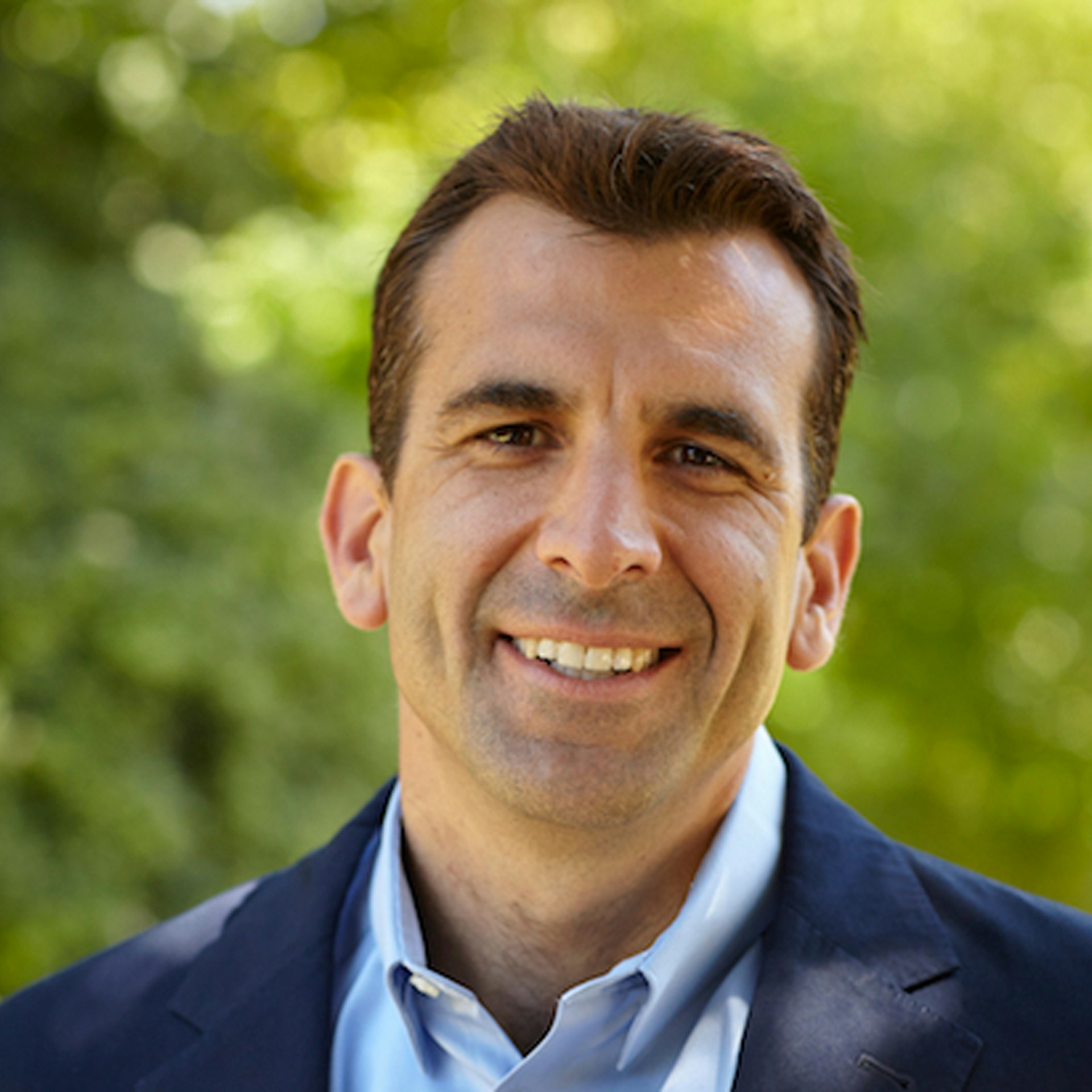
Sam Liccardo: It’s around building the [electric vehicle] infrastructure, and mandating it in new building construction so that residential as well as commercial buildings have the infrastructure in place… It’s so much less expensive to mandate it upfront than retrofit. What we’re seeing is that it’s working, even in a commute-heavy region. If you get the infrastructure in place, people will enjoy it, they’ll benefit from it, and EVs will sell.
-

Daniel Zarrilli: It’s a really important point that we in city government and policy need to do everything we can to make it easier on this transition. There’s market incentives and mandatory codes, and how we build and do land use — and those are critically important. And yet we’re fighting with one hand tied behind our back. Let’s consider things like fossil fuel subsidies — the [International Monetary Fund] recently reported that the US spends something like $650 billion a year on fossil fuel subsidies. We’re trying to set up incentives so people can make easier choices, yet the fight is not nearly fair because we’re always facing unnaturally cheap fossil fuels.
Bridging the partisan divide
Although the effects of climate change won’t discriminate based on political party, the efforts to fight climate change follow partisan political lines in the US. Sam Liccardo and Daniel Zarrilli explain how they try to engage other civic leaders on climate change, even if they disagree politically:
Learn More
Additional Information
Explore More
Environment

Take a sneak peek at some of the big thinkers and innovative doers who will take the stage at Aspen Ideas: Health from June 20-23, 2024!

At Aspen Ideas: Climate 2024, the world's most ambitious climate problem solvers came together in Miami Beach to address our collective future on this planet. Watch highlights...

Museums are typically testaments to the past, but a growing number are using exhibitions to shape our response to the future—specifically to climate change. Museum leaders wil...

Coastal cities are utilizing innovative solutions to adapt to extreme weather and rising sea levels, becoming more resilient in the face of climate change. From innovative des...

Storytelling, music, animation, and podcasts! Watch the magic of innovative content being born as creatives pitch their ideas to a panel of Planet Media judges, each hoping to...
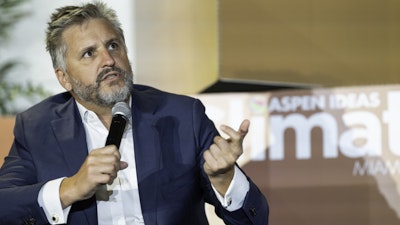
The impacts of the climate emergency are felt by populations worldwide, and they increasingly shape whether, where, and how people migrate. Mayors, city governments, non-profi...

Katharine Hayhoe is an atmospheric scientist and Chief Scientist for The Nature Conservancy. Ahead of Aspen Ideas: Climate next week, we caught up with Dr. Hayhoe to discuss t...

Since 2014, Aspen Ideas: Health has welcomed over 700 inspiring women leaders to our stages to share their bold approaches to better health. In honor of Women's History Month,...


The world seems to be moving and evolving faster than ever before, and democratic ideals are under threat in many countries around the globe. New York Times columnist and jour...

During Aspen Ideas: Health 2023, four innovators shared how they are using new technologies to reimagine the common health devices we use to treat patients and improve their q...

How is constitutional law being harnessed to address climate change? Ahead of Aspen Ideas: Climate, we caught up with Andrea Rodgers, Senior Attorney at Our Children's Trust,...


After millennia of human existence, we’re still figuring out and talking constantly about one of our most fundamental behaviors – sex. Despite the sexual revolution of the 60s...

As Aspen Ideas: Health wraps-up its 10th anniversary year, we're excited to share the ten most-watched sessions from the event. These conversations with artists, advocates, in...

Rose Kirk is the Chief Corporate Social Responsibility Officer for Verizon. We caught up with her about tech-based climate solutions and why digital skills and connectivity ar...


When Duke divinity school professor Kate Bowler wrote her best-selling memoir, “Everything Happens for a Reason (and Other Lies I’ve Loved),” she was grappling with the conseq...


For adults, the pressure to drink at social engagements, work events, restaurants or almost anywhere outside the home can feel constant. Recent research has found that “no amo...

Whether expressed through systems that are easy to navigate, devices that are friendly to their users, and spaces that are pleasing to the eye, thoughtful design can break dow...

At Aspen Ideas: Climate 2023, we dug into some of the biggest environmental issues of our time, from sea level rise and deforestation to food insecurity and energy policy, and...

Your first look at the leaders, innovators, policymakers, and luminaries joining us for Aspen Ideas: Climate 2024. Don't wait to hear from these extraordinary speakers — early...


Climate change catastrophes are already happening with increasing regularity, and it’s clear we need to take action. The Biden administration has set a target of zero carbon e...


